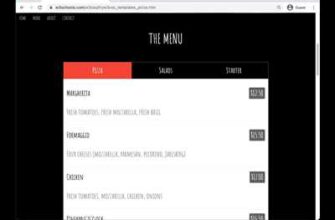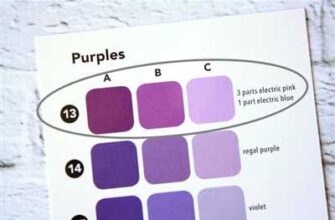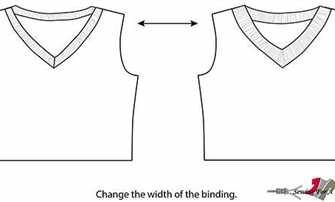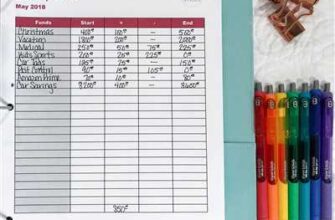
If you’re a content creator or influencer, you might be wondering how to maximize your reach and revenue. One effective way to do that is by creating, selling, and promoting your own merchandise. In this article, we’ll explore the step-by-step process of making merch and how it can help you grow your brand and make money.
1. Define your audience and product range: Before you start making merch, it’s important to identify your target audience and understand what kind of products they would be interested in. Consider the demographics of your followers and the content you create to determine the best product range for your brand.
2. Find a merch maker and open a shop: Once you have a clear idea of what you want to sell, you need to find a reliable merch maker. There are many online platforms, like Spreadshop, that help you create and sell your merchandise without any upfront costs. Open a shop on such a platform and start listing your products.
3. Promote your merch on social media: With your shop up and running, it’s time to spread the word. Leverage your existing social media channels and share photos, videos, or sneak peeks of your merchandise with your followers. Facebook, Instagram, and YouTube are some of the most popular channels to promote your merch and engage with your audience.
4. Price your merch strategically: Pricing is an important aspect of selling merchandise. You want to set a price that’s fair for your customers and profitable for you. Consider the cost of production, shipping, and any marketing expenses. Also, take into account the perceived value of your merchandise and the demand in the market.
In conclusion, making and selling merch can be a lucrative endeavor for content creators and influencers. It allows you to tap into your existing audience and generate additional income. By following the steps mentioned above, you can create a successful merch brand that resonates with your followers and helps you establish yourself as a superstar in your niche.
- How to Make Merch and Sell Like a Superstar
- Merch Maker
- 2 What kind of merch should you make and how to price it
- 👉 And pricing
- How to sell your merch
- 1 Generate word of mouth
- 2 Leverage your existing channels
- 3 Sell on marketplaces
- 4 Retarget your existing audience
- Product Range
- Video:
- HOW TO CREATE AND SELL MERCH FOR FREE | Step by step merch shop tutorial in under 10 minutes
How to Make Merch and Sell Like a Superstar
So, you want to make merch and sell it like a superstar? You’ve come to the right place! In this article, we will guide you through the process of creating and selling merchandise to maximize your success. Let’s dive in!
1. Find Your Niche
The first thing you need to do is figure out what kind of merchandise you want to create. Think about your audience and what they would like to see. Are they t-shirt lovers? Stickers enthusiasts? Or maybe they prefer other types of products? Knowing your target market will help you determine the right product range.
2. Create Your Merchandise
Once you know what kind of merch you want to make, it’s time to get creative. You can either design the products yourself or work with a professional graphic designer. Make sure your merchandise stands out and represents your brand. A good product will help you generate word-of-mouth and attract more customers.
3. Set Up Your Online Store
Before you start selling your merchandise, you need a platform to showcase and sell it. There are different marketplaces and channels you can use, such as Spreadshop or your own website. Whatever you choose, make sure it’s user-friendly and fits your needs.
4. Price Your Merchandise
Pricing is a crucial aspect of selling merchandise. You should research the market and see what similar products are selling for. Set a price that’s competitive but also reflects the value of your merchandise. Don’t undervalue your products, but also be careful not to overprice them.
5. Promote, Promote, Promote
Once your online store is open, it’s time to start promoting your merchandise. Leverage your existing social media channels and followers to spread the word. Share enticing images and videos of your products, and don’t forget to engage with your audience. You can also use Facebook ads to retarget customers and reach a wider audience.
6. Make Your Customers Happy
Customer satisfaction should always be your top priority. Provide excellent customer service and high-quality products. Encourage your customers to leave reviews and testimonials. This will not only help you build trust but also attract new customers.
In conclusion, making merch and selling it like a superstar requires creativity, market research, and promotion. With the right strategy and dedication, you can turn your merchandise into a profitable business. Remember to constantly evaluate and improve your process to stay ahead in the game. Good luck!
Merch Maker
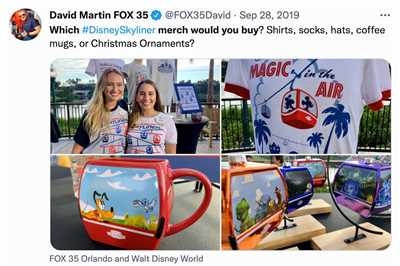
So, you want to make some merch? It’s a great way to connect with your audience and generate some extra income. Here’s a step-by-step guide on how to become a merch maker:
Step 1: Open a Spreadshop
Spreadshop is a platform that allows you to create and sell your own merchandise. It’s super easy to use, and you can customize your products with your own designs and branding. Plus, they handle all the production and shipping for you, so you can focus on creating awesome merch!
Step 2: Decide what kind of merchandise you want to sell
Before you start designing, think about what products would resonate with your audience. T-shirts are always a popular choice, but you can also offer things like stickers, hats, or even phone cases. The key is to create products that your customers will love and want to show off.
Step 3: Design your products
Now comes the fun part – designing your merch! Use tools like Canva or Adobe Photoshop to create eye-catching designs that reflect your brand. Don’t forget to include your logo or any other branding elements. The goal is to create products that people will want to wear or use.
Step 4: Set your pricing
When setting the price for your merchandise, consider factors like production costs and what your audience is willing to pay. You don’t want to price yourself out of the market, but you also don’t want to sell yourself short. Find a balance that works for you and your customers.
Step 5: Promote your merch
Once your merch is ready to go, it’s time to promote it to your audience. Leverage your existing channels like your website, social media platforms, or email list to spread the word. You can also collaborate with other brands or influencers to reach a wider audience. Don’t be afraid to get creative!
Step 6: Retarget and engage with your customers
After you’ve started selling, make sure to engage with your customers and encourage them to share their purchases. You can do this through social media shoutouts or even featuring customer photos on your website. Encourage word-of-mouth marketing by providing exceptional customer service and creating a community around your brand.
By following these steps, you’ll be well on your way to becoming a merch-making superstar. What’s most important is to always listen to your customers, adapt to their needs, and keep innovating. Good luck!
2 What kind of merch should you make and how to price it

When it comes to creating merchandise for your brand or website, the options are almost always endless. But what kind of merch should you make and how should you price it?
First and foremost, you should always leverage your existing audience and customers. Think about what they would like and what would resonate with them. Are they into t-shirts, stickers, or maybe even video merchandise? Consider their preferences and interests before deciding on what kind of merch to create.
Another crucial aspect to consider is the price range of your merch. You want to make sure that it is affordable enough for your followers to purchase, but also profitable for you. Research similar products on the market and see what they are selling for. This will give you a good idea of what is a reasonable price range for your merchandise.
Now, let’s talk about how to actually make and sell your merch. If you’re just starting out and don’t have a big following yet, you can make use of platforms like Spreadshop or open your own website to promote and sell your merch. These platforms make it easy to create listings for your products and generate sales.
If you already have a good number of followers and a strong presence on social media, you can go a step further and create your own brand. This means designing your own products and leveraging your existing audience to promote and sell them. By doing this, you can set your own price and have more control over your merch sales.
When it comes to pricing your merch, remember to factor in the cost of production, shipping, and any additional fees. You want to make sure you’re making a profit, but also that your merchandise remains affordable enough for your customers.
Don’t be afraid to retarget your audience and spread the word about your merch. Use channels like Facebook ads or word-of-mouth to help promote your products. The more you actively promote and share your merch, the more likely it is to sell.
Always keep in mind that the success of your merch depends on the quality of the product, the uniqueness of the design, and how well it resonates with your audience. If you’re going for a specific niche, make sure your merch reflects that.
In conclusion, figuring out what kind of merch to make and how to price it requires a good understanding of your audience and a little bit of market research. By following these steps, you can create and sell merchandise that not only represents your brand or website but also generates profit.
👉 And pricing
When it comes to pricing your merchandise, there are a few factors to consider. First, you need to determine what kind of merchandise you’re going to make. Is it t-shirts, stickers, or something else? The type of product will affect the pricing structure.
Next, you should think about what price range would be reasonable for your audience. Consider how much they’re willing to pay for your merchandise and what kind of value they attach to it.
Another important aspect is to evaluate the cost of producing your merchandise. This includes the cost of materials, manufacturing, and any other expenses involved in the process. You want to set a price that covers your costs while still allowing you to make a profit.
It’s also essential to consider how you’re going to market and promote your merchandise. Will you be selling it through your website, on marketplaces like Spreadshop, or through other channels such as Facebook ads? The marketing strategy you choose may impact the pricing of your products.
Additionally, you should think about leveraging your existing audience and followers to generate sales. If you have a large social media following or a website with good traffic, you can leverage that to promote and sell your merchandise without spending a lot on marketing.
Word of mouth can be a highly effective way to promote your merchandise. Encourage your customers to share their purchase on social media or recommend your products to their friends and family.
Retargeting is another strategy you can use to reach potential customers. By using tools like Facebook ads, you can target people who have shown an interest in your brand or similar products before.
Always keep an eye on your competition and the pricing of similar merchandise in the market. This will help you stay competitive and ensure that your prices are reasonable and fair.
Lastly, don’t forget to consider the value you’re providing to your customers. If your merchandise is unique, high-quality, or has a superstar endorsement, you can justify a higher price.
In summary, pricing your merchandise involves considering factors such as the type of product, cost of production, marketing strategy, leveraging existing channels, word of mouth, competition, and the value you’re providing. By carefully analyzing these aspects, you can set a pricing strategy that helps you make a profit and attract customers.
How to sell your merch
So, you’ve made some awesome merch and now you want to sell it. Here are a few steps to help you get started:
Step 1: Identify your audience
Before you start selling your merchandise, it’s important to know who your target audience is. This will help you tailor your products and marketing efforts to attract the right customers.
Step 2: Choose the right channels to sell
There are many channels you can use to sell your merch. Here are a few popular options:
- Online marketplaces – Platforms like Spreadshop, Etsy, and eBay make it easy to create a listing and reach a wide audience.
- Your own website – If you already have a website or blog, you can open an online store and sell your merch directly to your audience.
- Social media – Leverage your existing followers on platforms like Facebook, Instagram, and Twitter to promote and sell your merch.
Step 3: Set the right price
When it comes to pricing your merchandise, there’s a delicate balance between making a profit and appealing to customers. Research what similar products are selling for and consider factors like the cost of materials and production, as well as your desired profit margin.
Step 4: Promote your merch
Now that you have your merch ready to go and it’s listed for sale, it’s time to let people know about it! Use a variety of marketing tactics to spread the word, such as social media posts, videos, and collaborations with other brands or influencers.
Step 5: Always be re-targeting
Don’t assume that everyone who sees your merch listing will make a purchase right away. Use tools like Facebook ads and Google AdWords to retarget potential customers who have shown interest but haven’t made a purchase yet.
Following these steps will help you successfully sell your merch and generate buzz around your brand. Good luck!
1 Generate word of mouth
When selling merchandise online, word of mouth can be one of the most powerful marketing channels. It helps spread the good word about your product and encourages others to check it out. Here are a few strategies to generate word of mouth:
1. Leverage your existing audience: If you already have a following on social media channels like Facebook or Instagram, make sure to share your merchandise with your followers. They are most likely to support you and help spread the word.
2. Price it right: Before you open your merchandise listings on marketplaces or your website, make sure you have done a good pricing research. You want to offer a price that is fair to your customers and aligns with the value of your product.
3. Make it share-worthy: Create merchandise that is unique and catchy. Your customers should like it and want to share it with others. For example, if you’re selling t-shirts, design them in a way that stands out and catches people’s attention.
4. Retarget your customers: If someone has already purchased from you, you can retarget them with ads to buy more or share their purchase with their friends. This can help generate more word of mouth referrals.
👉 Don’t forget to always ask your customers to share their experience with your product and spread the word. It’s a simple ask that can have a big impact on your business.
2 Leverage your existing channels
Here’s how you can make the most of your existing channels to sell merch:
- Promote on social media: Use platforms like Instagram, Facebook, YouTube, and TikTok to showcase your merchandise. Create engaging posts, stories, or videos that highlight the features and benefits of your products. Share photos or videos of yourself wearing or using the merchandise to give your audience a glimpse of how they can incorporate it into their own lives. Remember to include a direct link or call-to-action for people to purchase the merchandise.
- Collaborate with other brands or influencers: Team up with like-minded brands or influencers who have a similar target audience as yours. Cross-promote each other’s merchandise to reach a wider audience and gain more exposure. You can feature their products on your channels, and they can do the same for you. It’s a win-win situation that helps both parties expand their customer base.
- Retarget your customers: If you have an email list or a database of customers who have previously purchased from you, utilize remarketing techniques to promote your new merchandise. Send out personalized emails or targeted ads to remind them of your products and encourage repeat purchases. Offering exclusive discounts or limited-time promotions can be an effective way to entice them to buy.
- Utilize marketplaces and print-on-demand services: If you don’t want to handle inventory or deal with shipping logistics, consider using marketplaces like Spreadshop, Teespring, or Redbubble. These platforms allow you to create a range of merchandise (t-shirts, stickers, and more) with your own designs. They handle the production, fulfillment, and delivery, while you earn a commission from each sale. It’s a convenient option for beginners or those who prefer a hands-off approach.
- Find a superstar maker: If you’re not a graphic designer or don’t have the skills to create your own designs, team up with a talented artist or graphic designer. They can bring your ideas to life and create unique artwork for your merchandise. You can either collaborate on a profit-sharing basis or hire them to work exclusively for you. Having high-quality and visually appealing designs can greatly enhance the appeal of your merchandise.
- Price it right: Research the market and price your merchandise competitively. Consider factors like production costs, profit margin, and what your target audience is willing to pay. Offering different pricing tiers or bundle deals can attract customers and encourage them to spend more. Keep in mind that pricing too high or too low can both have negative impacts on your sales, so find a balance that aligns with the value and quality of your products.
Remember, the key to successfully leveraging your existing channels is promoting your merchandise consistently and engaging with your audience. Be creative, genuine, and always keep the interests and preferences of your followers in mind. With the right strategies and efforts, you can turn your existing platforms into effective sales channels for your merch!
3 Sell on marketplaces
If you want to sell your merchandise without the hassle of creating your own website or managing inventory, you can consider selling on marketplaces. There are various online platforms where you can list and sell your products, such as Spreadshop, Etsy, Amazon, and many others.
Here’s how you can leverage marketplaces to sell your t-shirts, stickers, or any kind of merch:
- Open an account: Sign up on the marketplace platform of your choice. Make sure to read and understand their terms and conditions before getting started.
- Create your product listings: Upload high-quality images of your merchandise along with a compelling description. Set the price and choose the pricing strategy that suits your business goals.
- Promote your merchandise: Marketplaces often have built-in tools to help you promote your products. Use these features to reach a wider audience. Additionally, you can also promote your merchandise through your existing channels, like your website, social media channels, or email list.
- Retarget your audience: To generate more sales, consider retargeting your website visitors or social media followers. By showing them ads specifically tailored to their interests, you can increase the chances of converting them into customers.
Selling on marketplaces can be a good way to get your merchandise in front of a large audience without the need for a dedicated website. However, keep in mind that you’ll be competing with other brands and sellers, so it’s essential to always find ways to stand out from the crowd. That’s where good branding, pricing, and customer service come into play.
Remember, no matter how you choose to sell your merch, whether through marketplaces or other channels, always stick to what’s right for you and your brand. Promote your products, generate buzz, and let word-of-mouth help you become a merchandise superstar!
4 Retarget your existing audience
What’s also important is that you should never rely solely on your website or social media channels for selling your merchandise. Open up to other marketplaces and platforms like SpreadShop, where you can list your products and reach a wider range of customers. By diversifying your channels, you increase your chances of making sales and reaching new audiences.
Retargeting your existing audience is another effective strategy to generate sales. Use advertising platforms like Facebook to reach out to your previous website visitors or followers. By creating targeted ads, you can remind them about your merchandise and encourage them to make a purchase.
Additionally, consider creating video content to promote your merchandise. Videos are engaging and shareable, making them a powerful tool to generate interest and drive sales. Create product videos that showcase your merchandise in action and demonstrate its features and benefits. Share these videos on your website, social media platforms, and other marketing channels to reach a wider audience.
Pricing is also an important factor when it comes to selling merchandise. Find the right balance between a price that appeals to your customers and allows you to make a profit. Conduct market research to see what similar products are priced at and adjust your pricing accordingly. Offering competitive prices can help you attract customers and stand out from other brands.
In summary, to effectively sell your merchandise, you should:
- Stick to the good old word-of-mouth marketing
- Diversify your sales channels to reach a wider audience
- Retarget your existing audience using advertising platforms
- Create video content to promote your merchandise
- Set competitive pricing that appeals to customers
By following these strategies, you can maximize your chances of success and make your merchandise the superstar it deserves to be!
Product Range
When it comes to creating merchandise, there are a lot of things you can make to sell to your audience. From t-shirts and stickers to mugs and hats, the possibilities are endless. You can even create custom products like phone cases or mouse pads to cater to specific niches.
Before you start designing and listing your products, it’s important to research what kind of merchandise your target audience would be interested in. Look at what other brands in your niche are selling and what seems to be popular on marketplaces like Etsy and Amazon. This will help you understand what products are in demand and what you could potentially sell.
Once you have an idea of what products you want to create, you can open an online store or use a platform like Spreadshop to sell your merchandise. These channels will help you reach a wider audience and provide a convenient way for customers to purchase your products.
Pricing your merchandise is always a bit tricky, but you should aim to set a price that covers your costs and generates a good profit margin. Take into account the cost of materials, production, and any fees or commissions you may have to pay to the marketplace or platform you’re using.
To promote your merchandise and generate sales, you need to leverage your existing audience and followers. Use social media channels like Facebook and Instagram to share what’s new in your store and encourage your fans to spread the word. You can also create videos or collaborate with influencers to help promote your products.
If you’re going for a more grassroots approach, you can attend events or set up booths at local markets to sell your merchandise directly to customers. This can be a great way to connect with your audience and get feedback on your products.
Another strategy is to retarget your customers with ads. If someone visited your website but didn’t make a purchase, you can use targeted ads to remind them of the product and entice them to come back and buy. This can be a powerful way to increase your sales and conversion rate.
Remember, the key to selling merchandise is to create products that your customers will love and want to buy. Always consider what they would like and how your merchandise aligns with your branding and image. With the right product range and marketing strategy, you can become a merchandise maker that people adore.
So, now that you know how to make merch and what products to create, it’s time to get started. Good luck!

